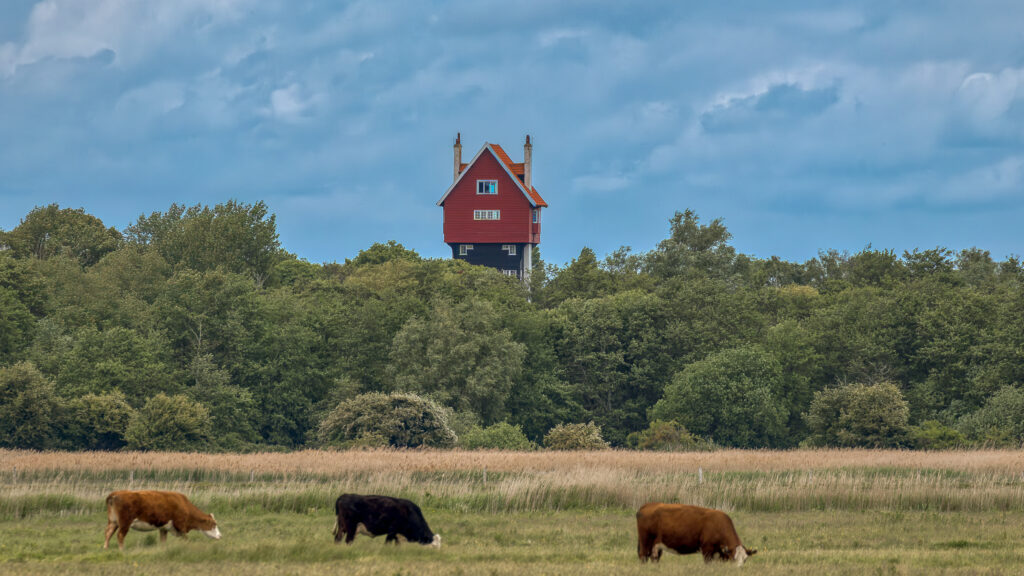Investing in UK Holiday Homes: What You Need to Know Before Buying

Owning a holiday home in the UK is a dream for many – a cosy place by the coast or in the countryside to enjoy with family, and a smart way to generate extra income when you’re not using it. Living and working in Norfolk and Suffolk, I’ve seen how the right property can be both a personal retreat and a profitable asset. But investing in UK holiday homes is not something to rush into. To make it work for you, you need the right location, a clear view of the numbers, and a good understanding of the rules that apply.
In this guide, I’ll share my best UK holiday home investment tips based on years of helping clients find the perfect property in Norfolk and Suffolk.
1. Start With the Why and the Where
Ask yourself: Is your main goal personal enjoyment, income, or a balance of both? Your answer will shape every decision that follows.
If you want to maximise investment income, I’ll be looking for locations with high year-round appeal – places where people book in summer for the beaches and in winter for the charm. In Norfolk and Suffolk, that could mean Southwold with its colourful beach huts, Aldeburgh with its music festival, or Wells-next-the-Sea for its harbour and walking trails. When I search for clients, I focus on:
- Accessibility – Easy to reach by road or rail. Guests want to arrive relaxed, not exhausted.
- Year-Round Draw – Nature reserves, historic towns, and seasonal events keep bookings steady.
- Balanced Demand – Too many holiday lets in one spot can mean lower occupancy rates.
2. Understanding Rental Potential
If income is part of your goal, get a realistic picture of what the property can earn. I start by looking at:
- Seasonal rates for similar homes.
- Average occupancy because steady bookings mean steadier income.
- Property type and size. One-bedroom bolthole may attract couples, while a large family home could command higher weekly rates.
- Extra features like log burners, sea views, gardens, or pet-friendly policies. These can boost bookings and allow for higher rates.
A charming two-bedroom cottage in a sought-after Norfolk village could rent for £800–£1,000 a week in peak season, but you need to factor in the quieter months when income drops.
3. Meeting Legal Requirements for Holiday Homes in the UK
Buying for personal use is one thing – renting out is another. There are important legal requirements for holiday homes in the UK that you must meet before taking bookings:
- Planning Permission – some areas, especially conservation zones or those with restrictions on second homes, may require specific approval.
- Safety Compliance – gas, electricity, and fire safety checks are essential, along with smoke alarms and carbon monoxide detectors.
- Licences – certain councils require a holiday let licence.
- Insurance – standard home insurance usually won’t cover holiday lets, so you’ll need a specialist policy.
4. Be Clear on Tax and Running Costs
If you want your property to qualify as a Furnished Holiday Let (FHL), it must:
- Be available to rent at least 210 days a year
- Actually be let for at least 105 days a year
- Be furnished to a standard suitable for normal living
FHL status brings tax perks, such as offsetting certain costs and claiming capital allowances, but it also means keeping proper records and meeting the letting criteria each year.
You’ll also need to budget for:
- Stamp Duty Land Tax (SDLT) – second homes pay a 3% surcharge on top of the standard rate
- Council Tax or Business Rates – the local authority decides which applies
- Income Tax – any holiday home rental income in the UK is taxable
Speaking to an accountant before you buy is one of the best UK holiday home investment tips I can give you.
5. Decide Who’s Managing It
Owning a holiday home isn’t just about buying – it’s about keeping it running. You can manage it yourself, handling all bookings, cleaning, and guest communication, or you can hire a holiday letting agency.
- Self-management means more profit, but more work.
- Agencies handle marketing, bookings, and guest services, but take 15–25% of your income.
Also, budget for:
- Regular maintenance (coastal properties, in particular, need extra care)
- Garden upkeep
- Utility bills and Wi-Fi
- Fresh décor and furnishings to keep the property attractive to guests
6. Emotional vs. Investment Choices
One of the most exciting parts of investing in UK holiday homes is picturing yourself enjoying it – morning coffee overlooking the sea, long walks through fields and footpaths, evenings by the fire. But I always remind my clients to keep both heart and head in the decision-making process.
When I help clients find their perfect holiday property, I always encourage them to picture both their own enjoyment and the property’s marketability. Ideally, your holiday home should be a place you love visiting, but also one that works hard for you financially.
7. How I Help Buyers Find the Perfect Holiday Home
As a bespoke property finder, I work exclusively for you, the buyer, not the seller. That means I’m 100% focused on your needs, from identifying hidden gems to negotiating the best possible price.
My role as a property finder is to take the stress and guesswork out of the process, ensuring you make a smart, well-informed purchase that fits both your lifestyle and your investment goals. I combine local knowledge with market insight to help you buy with confidence.
Let’s Find Your Home in the UK
Right now, you’re weighing up an important decision. A holiday home could give you years of joy and a steady holiday home rental income in the UK – if you choose wisely. Focus on location, understand the rules, get the finances right, and think long-term.
If you’d like help finding the perfect property to begin investing in holiday homes in Norfolk or Suffolk, I’d be happy to work with you. Contact me today and let’s find you a place you’ll treasure and an investment that works for you.

